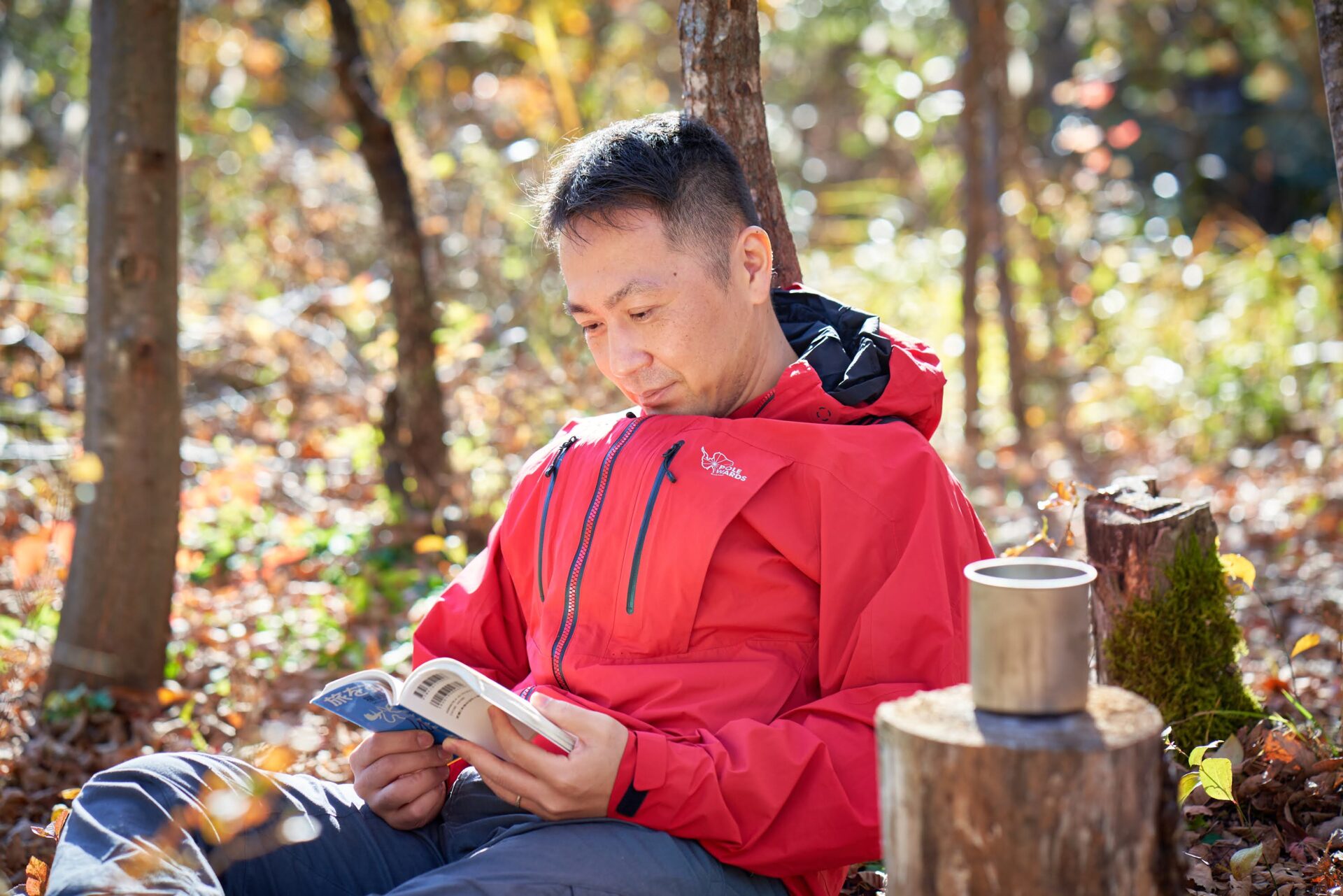Do you ever find yourself getting annoyed at your housemate for small things, like the way they talk or move? Do you ever feel like you can’t seem to ignore an invasion of personal space or the volume of other people’s voices?
During the coronavirus pandemic, many of us experienced a dreadfully stifling life of not being able to meet our friends and family, even for a simple fun night out. If you know someone who claims that they have grown “accustomed” to that situation and are “fine with it,” you may want to check up on them.
According to Yusuke Murakami, an architect specializing in polar regions,”people go into self preservation mode when they exceed a certain phase of caring about something, and they stop feeling emotion about it.” What awaits beyond that phase is a state of numbness where we lose our ability to “sense” things. This is not problematic for small things, but it can be detrimental to mental health if it goes too far.
In our endlessly stressful lives, what can we do to “rest” properly? Murakami is the perfect person to ask about this.
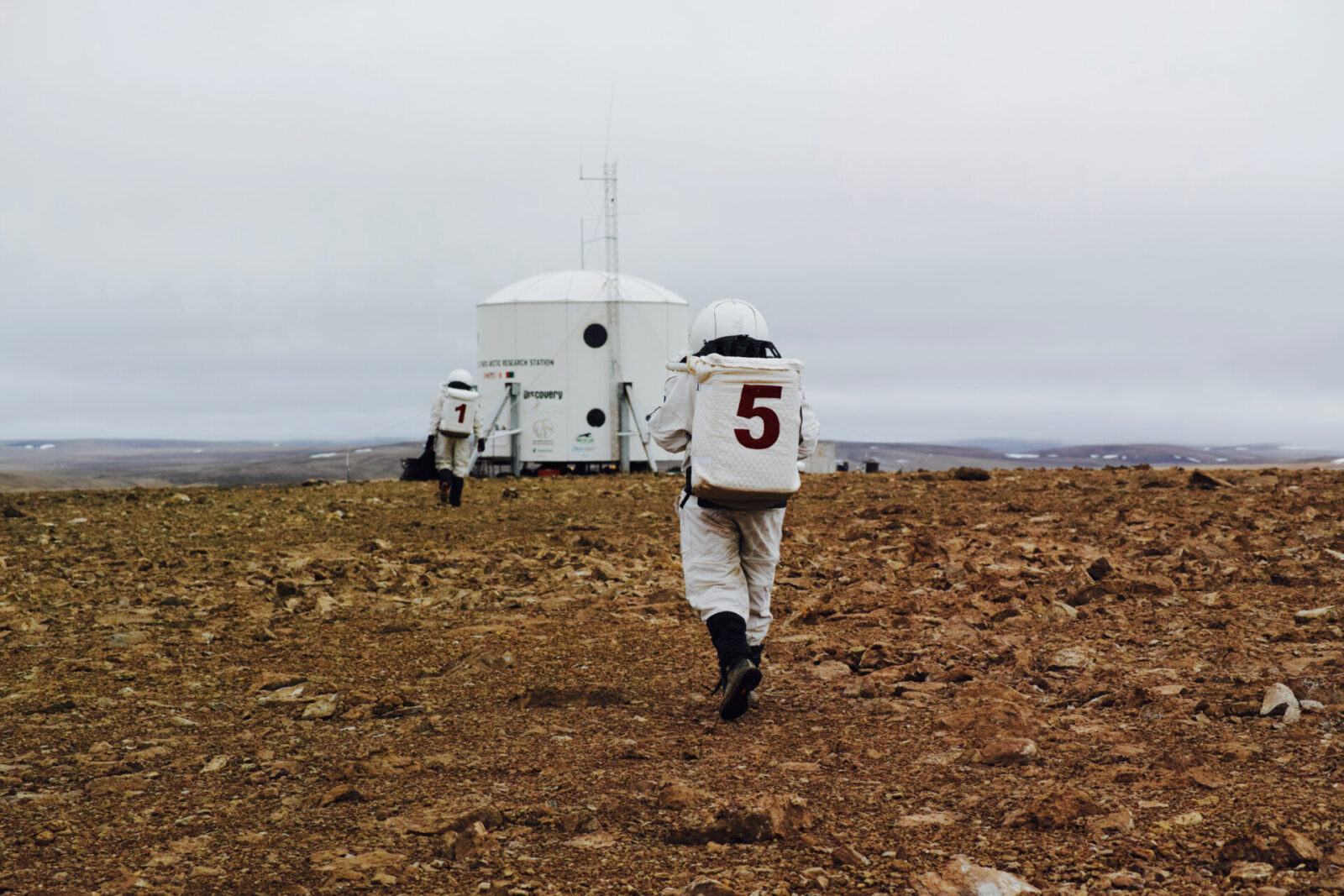
He has spent over 1,000 days in an isolated environment, including 15 months at Showa Station as an Antarctic researcher and 160 days in a simulated Mars base during the “Mars 160” habitat experiment.
Simply put, he is a man who knows quite a lot about how to live under the most stressful environments for mankind.
160 days of “self-lockdown” with colleagues from around the world
Murakami traveled to polar regions in order to study the “real fundamental needs of people” from the perspective of an architect. There are not many people like him. His travels include spending 80 days in the deserts of the United States in 2016, spending 80 days on Devon Island in the Arctic Circle in 2017, and a unique program called the “Mars 160,” where he spent 160 days in a simulated Mars base habitat.
Organized by The Mars Society and founded by aerospace engineer Robert Zubrin, the mission of “Mars 160” was to identify the possible problems that may occur in the first 80 days of human life on Mars.
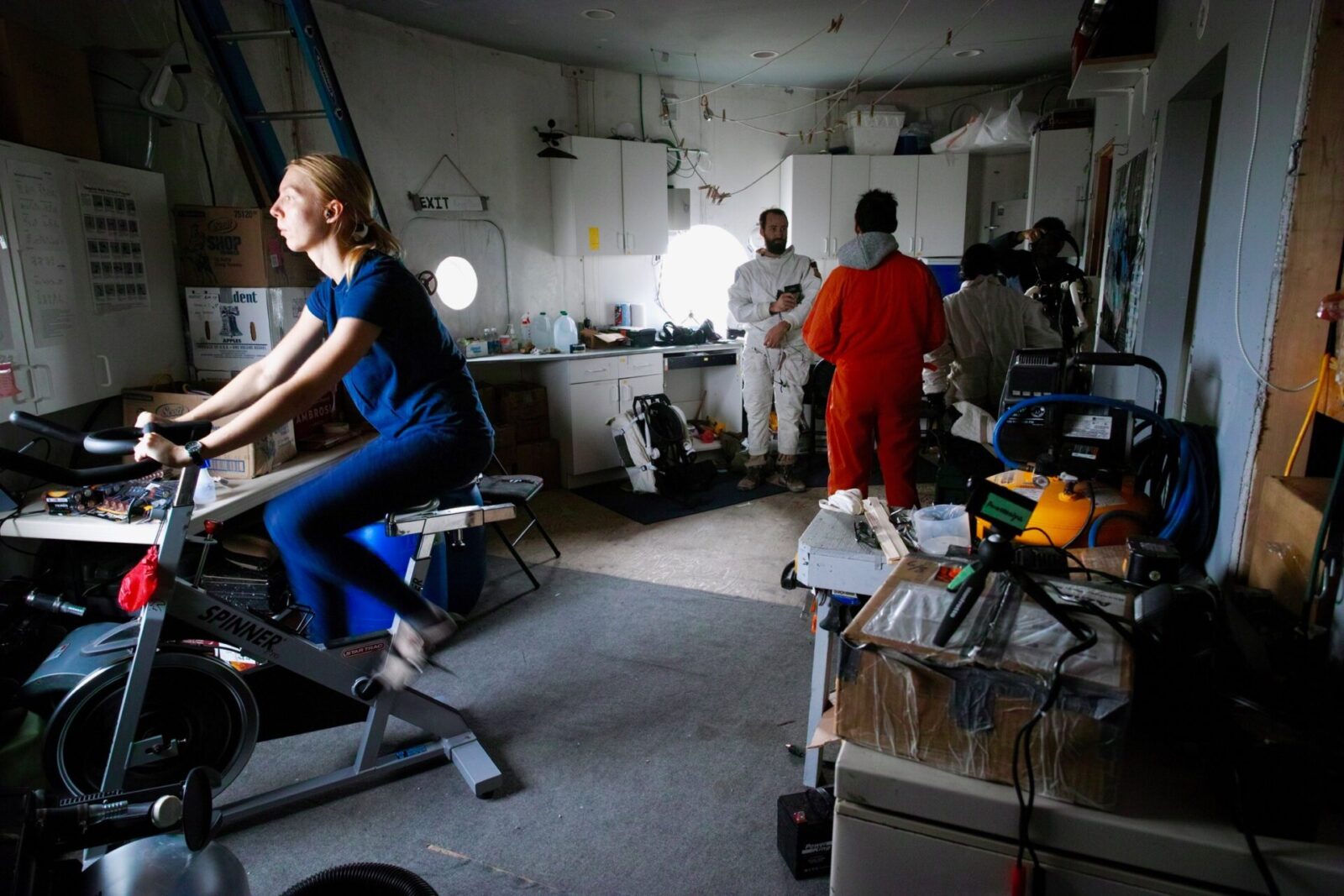
Murakami participated as second-in-command, and he lived with three men and three women from the United States, Russia, Canada, France, India, and Australia in a cylindrical, two-story experimental building about eight meters in diameter. Their private rooms had only enough room to lay down and they could only shower once a week. Because the experiment was under the setting of being on Mars, everyone was required to stay indoors at all times.
Imagine seven people from different cultures and customs spending 160 days together in a small, cramped space. Similar experiments have been conducted in the United States and Russia, but most have ended in failure due to the devastating deterioration of human relationships. Among them, “Mars 160” was considered a success. It is also why Murakami has earned the title of being “the closest man to Mars in Japan.”
The dangers of desensitization in normalcy
When living in the South Pole or in a simulated Mars environment, accidents and events often depicted in movies rarely actually happen. On the rare occasion that one does come up, the crew work together to resolve it.
Murakami says his biggest fear is when conflict occurs in normal situations.
“For example, let’s say there is a crew of seven people and only one person believes something is a problem, but the other members don’t even take notice or do not see it as a problem. Then this issue causes one person to become overly sensitive and isolated. There are times when we feel that things are going well for us, but in fact we are creating a burden on someone else.”
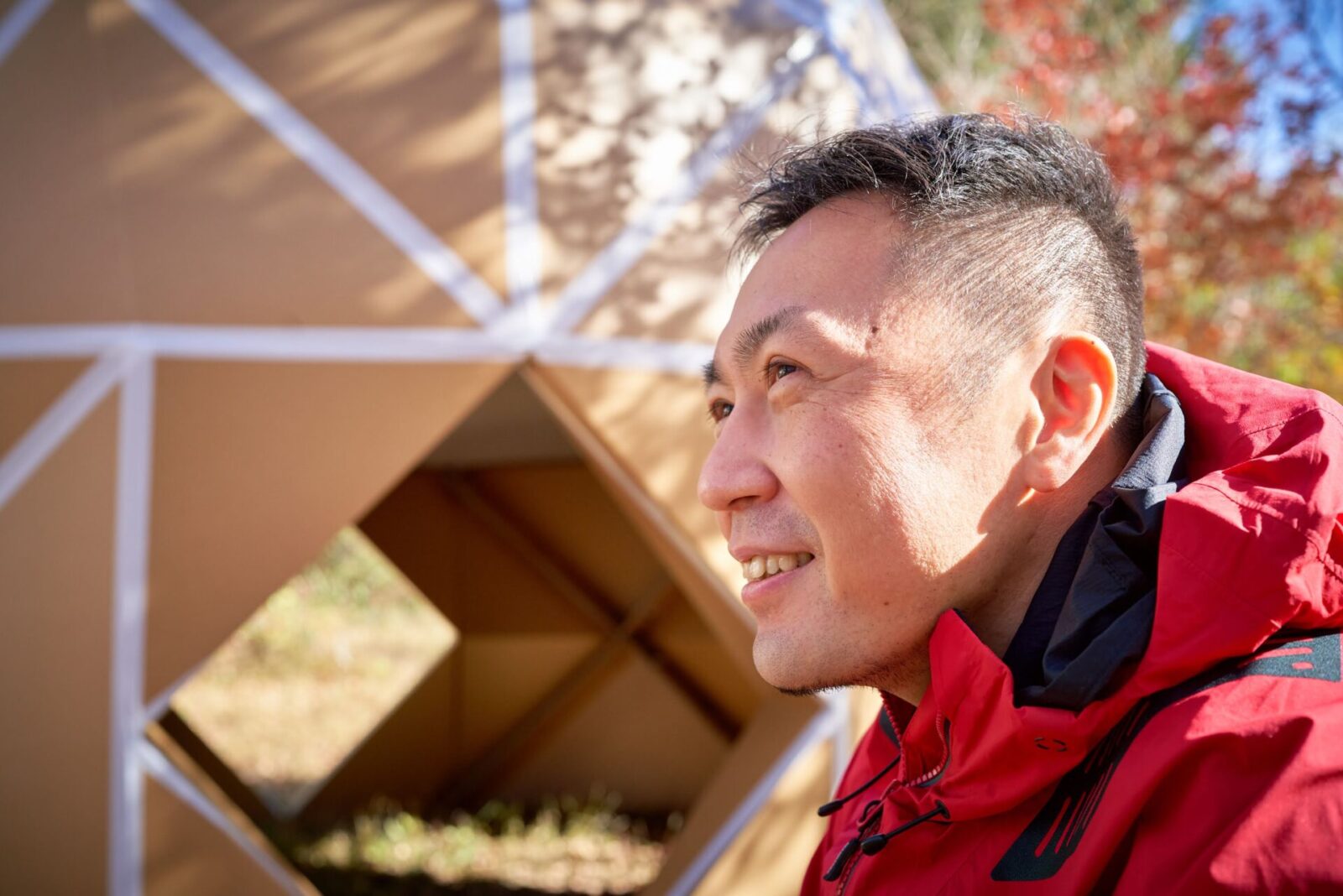
These differences in understanding are something we find in family and workplace relationships as well. It is important to address these issues early, but the aforementioned “desensitization” is what can become problematic.
Our everyday lives are filled with a lot of little stimuli. When people walk with their smartphones out in one hand while also being careful not to bump into other people or things, our brains are processing massive amounts of information.
In contrast, in isolated environments like the “Mars 160,” there is extremely little stimuli. In these environments, our brains become under-stimulated and have extra capacity to process information, so it becomes more sensitive to noises or little things that would not usually bother us. This becomes the source of stress and the cause of conflict. However, we naturally try to avoid conflict and keep those feelings inside us. By forcibly suppressing the waves of our emotions, we start to desensitize as a means of self-preservation.
Isolated spaces accelerate this desensitization.
“When you spend time with the same crew members in the same room and doing the same things everyday, you become more and more desensitized. For example, this desensitization may cause a situation where a crew member goes missing, but you don’t even realize it. When you are repeating the same daily rhythm, you start feeling like they are there, even if they are not. When our emotions become numb, we don’t notice changes in another crew member’s well-being, or notice the signs someone sends out before they explode in anger.”
Even if we are not in such extreme environments, long term quarantine or periods spent in isolation can desensitize our emotions and this desensitization can happen to anyone.

What we can do at “60 to 70%”
When a team member experiences an emotional outburst, the need to resolve the issue quickly can limit the number of options on how to address it. In order to resolve the issue before it gets out of hand, it is important to find out what is causing the frustration and anger within the team and let the team vent.
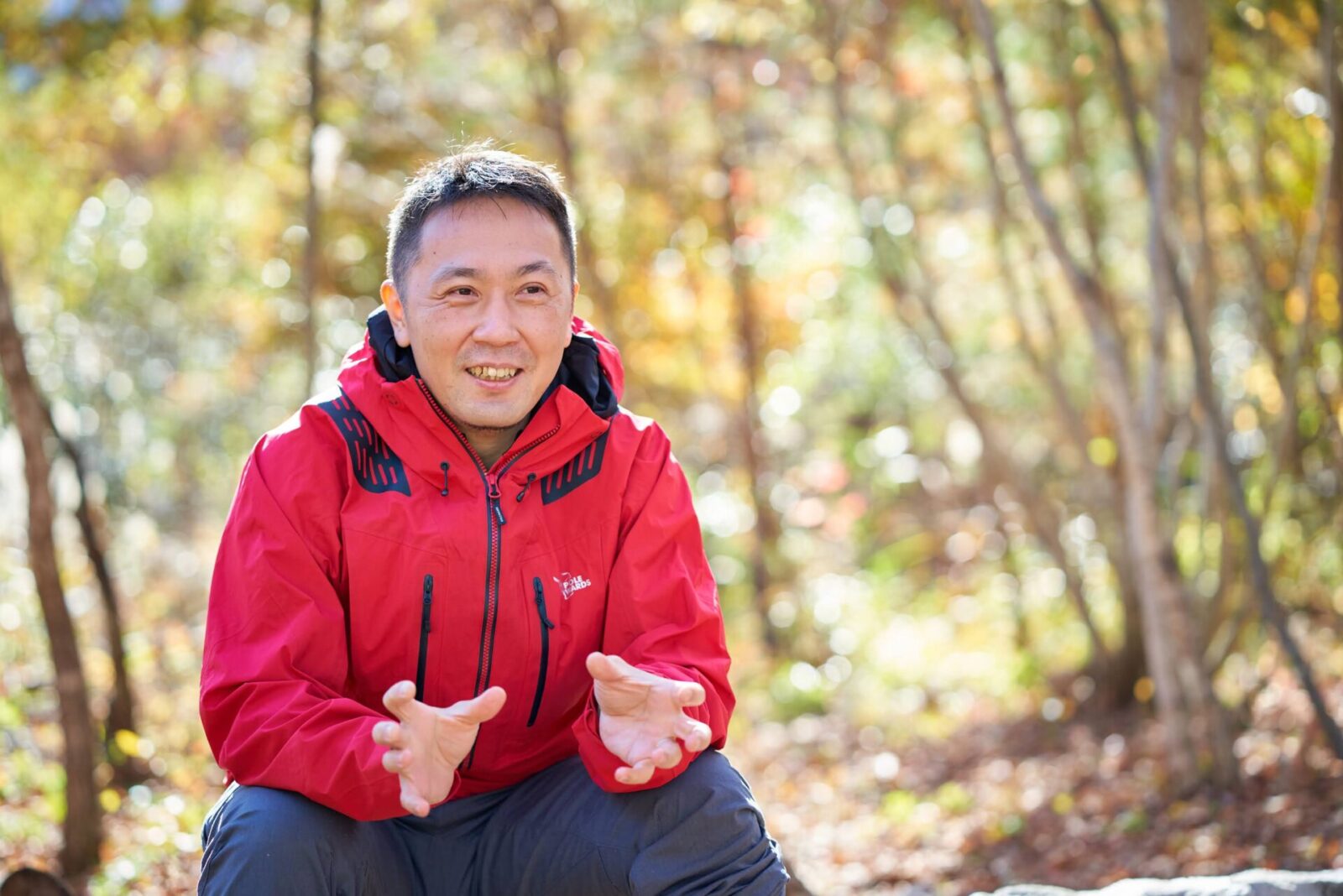
Murakami says “each person is a unique individual so of course there will be differences in opinions. I think it is healthy that conflicts arise. It is important to have appropriate confrontations and arguments.”
However, that does not excuse excessive or extreme fighting, and establishing that fine line can be difficult. It is not easy to be aware and sensitive to those around you when you are in an environment that desensitizes you. How did Murakami handle such situations?
“It is always the case that people try too hard at the beginning and they become overwhelmed later on. I try to keep my usual pace from the very first day. It is probably just right to have people think that I am a slower paced person. Things you can do with 120% effort is not a reflection of your skill. Your skill level is what you can do at 60% to 70% effort and so that is what I try to maintain.”

Wearing pajamas to signal personal time
How you spend your personal and free time is important when it comes to maintaining consistency and a little spare energy.
In an isolated environment, it is hard to differentiate work and personal time because the space for work and personal time is the same. Sometimes a coworker will ask you to do something right when you are finishing up with your work and getting ready to wrap up.
Of course, they do not know that you are about to wrap up so they are not to blame, but these things do become an annoyance to us. When these annoyances occur repeatedly, it can light the spark for conflict.

Murakami came up with a method to prevent these misunderstandings and calls it “Super Off-Mode.”
“When someone asks you to do something and you refuse, it can cause friction. At the same time, we don’t like telling people who are still working that we are in “off mode,” or that it is our personal time. So it is important to find a way that expresses your situation to the people around you naturally or non-verbally. The easiest way to do this is how you dress.”
“From day one, I would change into my pajamas before closing off for the day, and on my days off, I would spend the whole day walking around in my pajamas. This lets everyone around me know that when I am wearing my pajamas, it is my personal or ‘off’ time.”
Even among such a diverse and international group, it is very rare that a person would ask someone in pajamas to do work. The effectiveness of a simple, yet universally understood meaning of wearing pajamas to non-verbally communicate was very good. Only when everyone has personal time to really take it easy can people maintain concentration to pick up on signs of possible risks early on.
Documenting daily life with a complex camera

Murakami travels light, but he always carries a single-lens reflex camera with him.
There are photos he takes when he is on-duty and when he is off-duty. He keeps his camera nearby so he can take both. He chooses a more complex camera on purpose and adjusts it to his liking. He doesn’t use zoom lenses and when he wants a close up, he walks up to the object he wants to photograph.
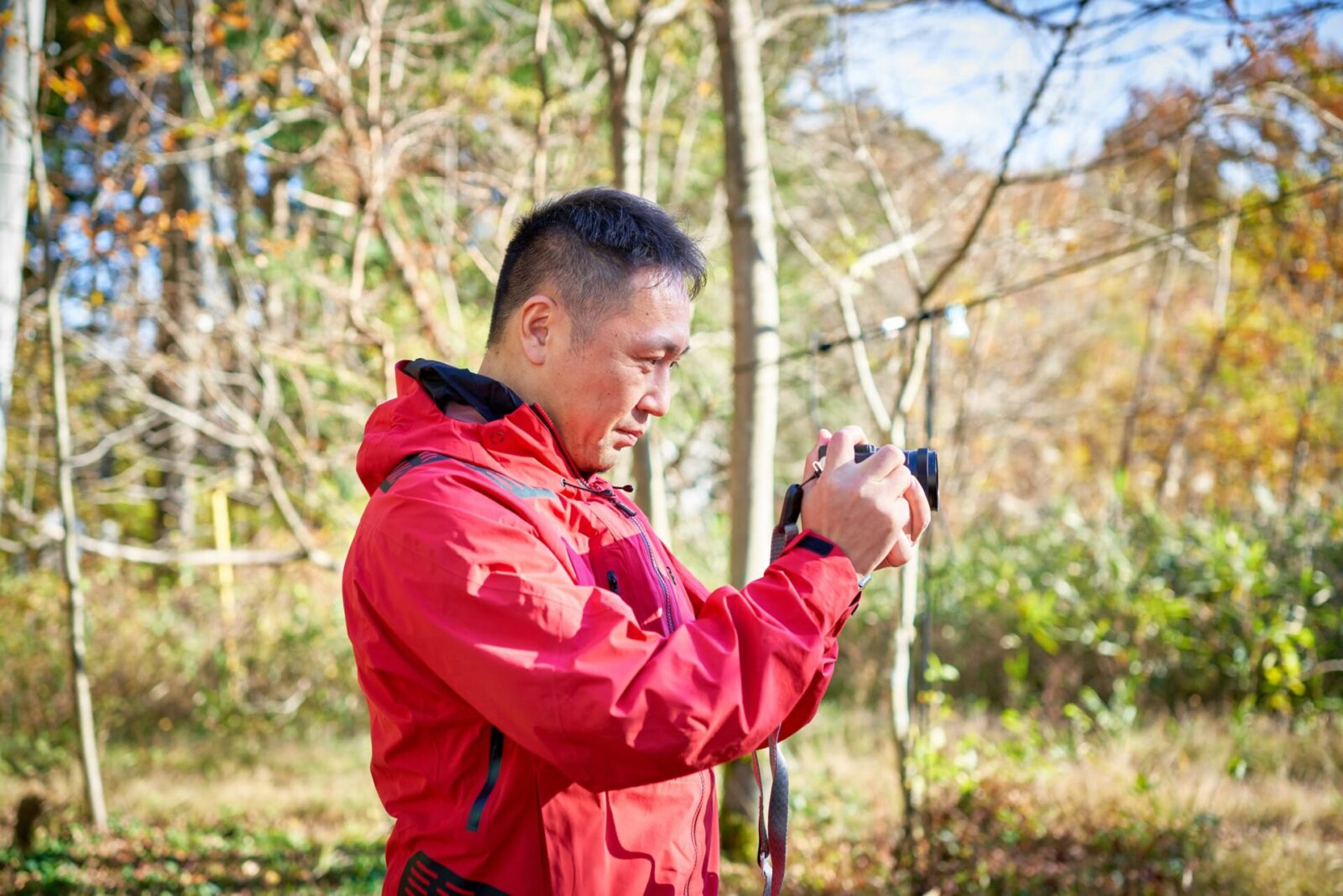
Murakami says “I don’t necessarily like taking commemorative photos, and I hardly look at the photos I take.” So why does he take photographs?
“Having a camera with me at all times helps me maintain an outsider’s perspective when something happens, even in extreme environments. For example, let’s say a bear shows up. Besides the options of ‘fighting’ or ‘fleeing’, the option of ‘observing’ arises. In extreme environments we are required to prioritize efficiency and speed so it is important for me to keep something close by that is a bit complicated to handle.”
The ambiguity in the Japanese language becomes helpful in extreme environments
Murakami also spends his free time reading books. Because the weight of his luggage is often limited by mission orders, he can only pack about five books. He carefully chooses which books to take with him, but each time he has some regrets. And yet, he reads the same book over and over.
We asked him what kind of books he chooses, and Murakami smiled a little shyly.
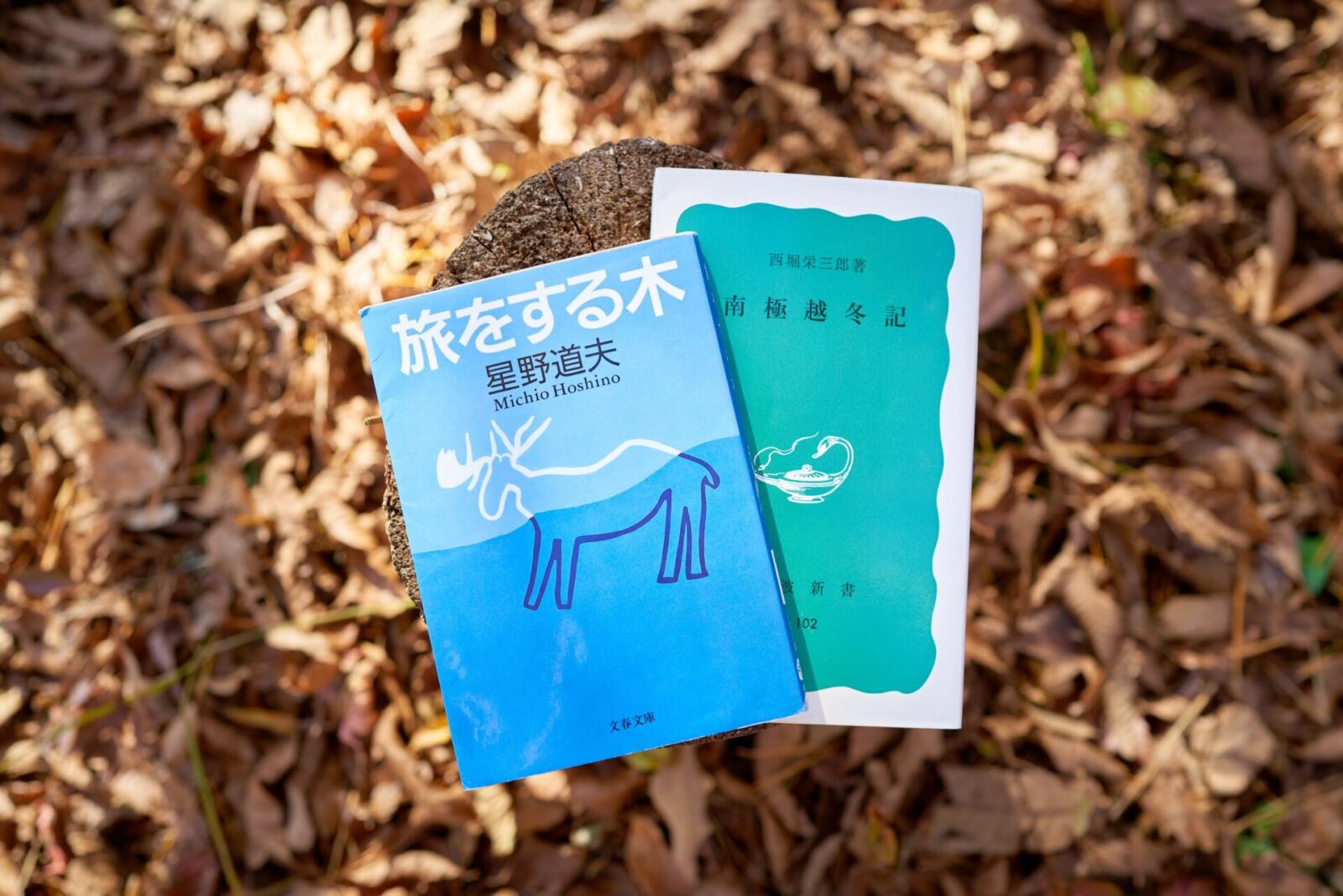
“If you take one of Michio Hoshino’s books with you, you can’t go wrong. Each time I feel like I depend heavily on Mr. Hoshino’s writings. His writing style leaves a lot up to the reader’s imagination. You can skim through his books, or take your time with them so no matter how many times you read it, your emotions and speed changes with how you are feeling at that moment.”
Immersing himself and reading in the Japanese language is very important for Murakami, especially when he is on an international mission. English is the common language among the crew, and in the English language, the subject and objective is always clear so there is no grey area in daily communication.
On the other hand, Murakami says that using English “desensitizes” him because the roles and relationships between each person are clearly established and leaves no room for further curiosity. If one of the crew becomes very stressed out, these roles and predetermined relations may prevent others from noticing it and they may leave it be. When he spends his time in an English speaking environment, he becomes too accustomed to a world where responsibilities are made too clear.
This is why Murakami chooses to read Japanese books. Through them, he reexamines a culture where people are careful to read each other’s emotions and must be considerate of all ambiguities.
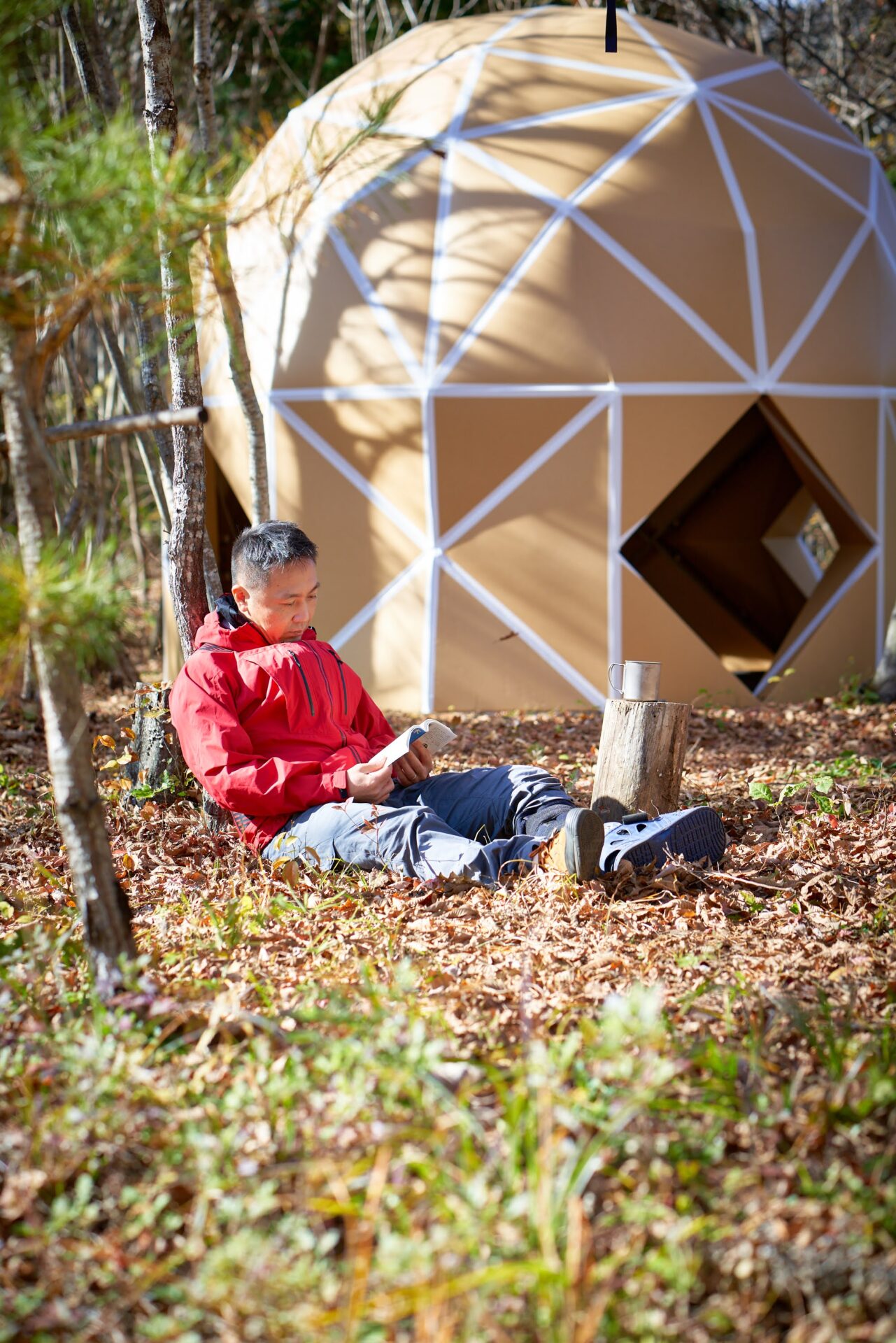
The differences between “sustenance,” “meals,” and “feasts”
If books and cameras are what supports Murakami’s inner self, what does he think about meals and tea time with his crew members?
Murakami describes “sustenance” as something that is not meant for flavor or enjoyment, but only nutritional intake. He describes “meals” as a private time and space that brings richness to life. When a group of people join that rich space and time, it becomes a “feast.”
“The crew working in extreme environments has a lot to do so we tend to eat simple meals just for nourishment. That’s why we have an unspoken agreement to stop working and eat dinner together. Having a conversation around the dining table not only adds richness to time and space, but it is also a custom that is shared in all cultures and an important way to spend time to deepen understanding among each other.”
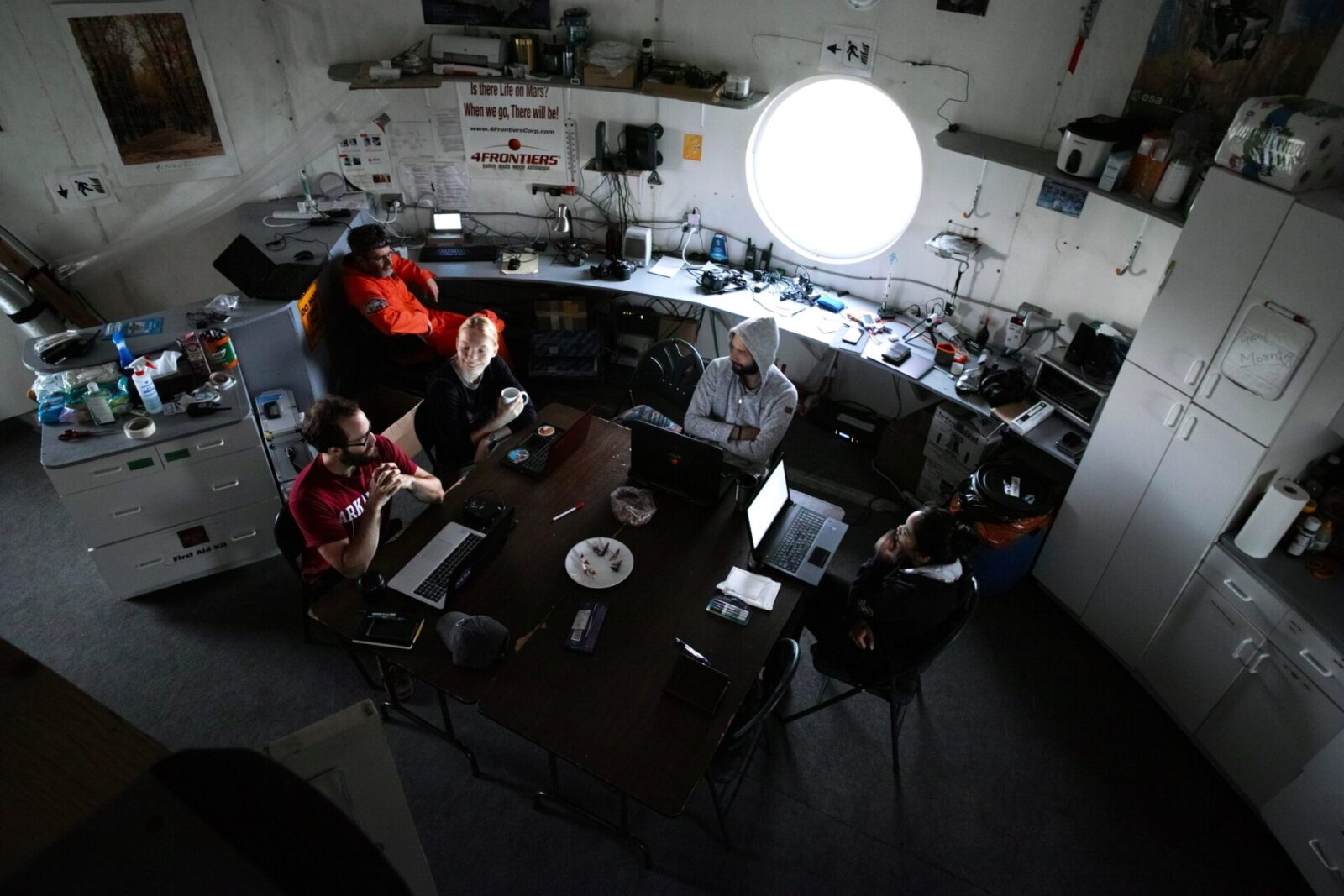
Although it may be efficient to eat sustenance simply for nutrition, it takes away three opportunities in a day for the crew to come together and converse. In 160 days, that becomes 480 times. That is a lot of missed opportunities. Whether at the Japanese Antarctic base or in a simulated life on Mars, the crew all sit down to eat together at mealtime.
Even in extreme conditions, where “inefficiencies” are mostly eliminated, there is value in taking time everyday to “feast” together.
The power of tea time in extreme environments
Murakami describes tea time in extreme environments as “moments that make up the times between sustenance and meals, and meals and feasts.”
Even for lone adventurers, just having sustenance alone is not satisfying and drinking tea gives people a moment to relax. In a team, even if you are too busy to share a meal, you can still get together for a short tea break.
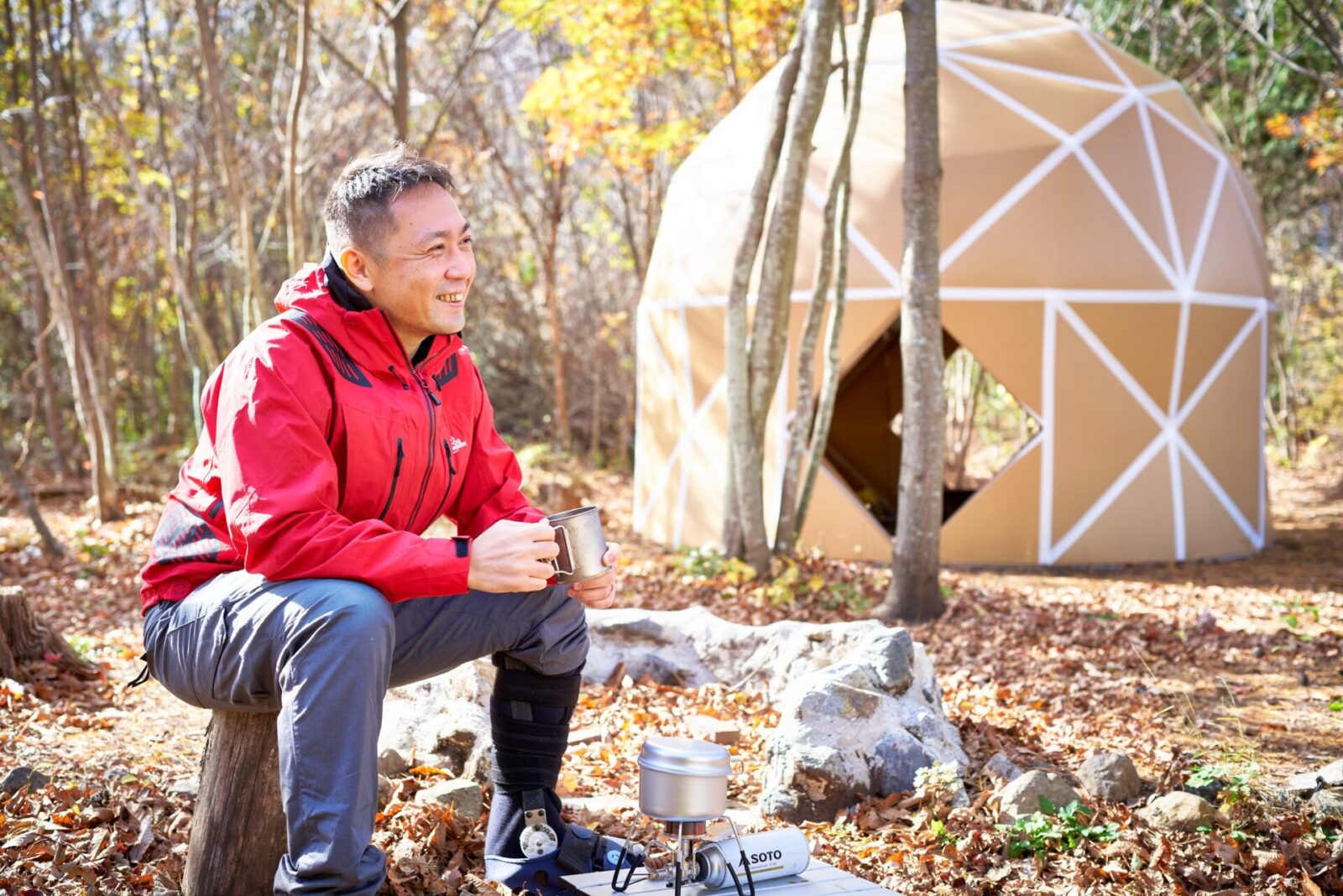
“The amazing thing about tea is you find that there is a very low possibility that someone will say no when you invite them to have a cup of tea with you. Perhaps there are cases where a person is really too busy, or simply doesn’t like you, but no one denies the act of drinking tea on its own. In my experience, the more extreme the environments are, the harder it is to find things that people won’t say ‘no’ to. (laughs)”
In extreme environments, one’s life is often on the line. Because of this, the people who work in these environments tend to have superior physical and mental capabilities.
Since each person has strong personalities, Murakami says “everyone comes in with excellent accelerating skills, but no brakes.” When he was put in charge of managing such a group, he said that tea time played a significant role.

“In extreme environments, each team member focuses on working hard. There are many ways to motivate people to work hard, but it is more difficult to make them wait or stop. Ordering an active person to not do anything can be a very difficult thing for them.”
“In these situations, tea time acts as a very natural way to put on the brakes or take control of the wheel. At first glance, it may seem like a waste of time, but sometimes it shows aspects of team members that you otherwise will not see, or you may find something unique about them. Sometimes, it will give you a sense of things to come. That’s why for me, inviting someone to tea is a great tool for communication.”
Tips on surviving stressful times
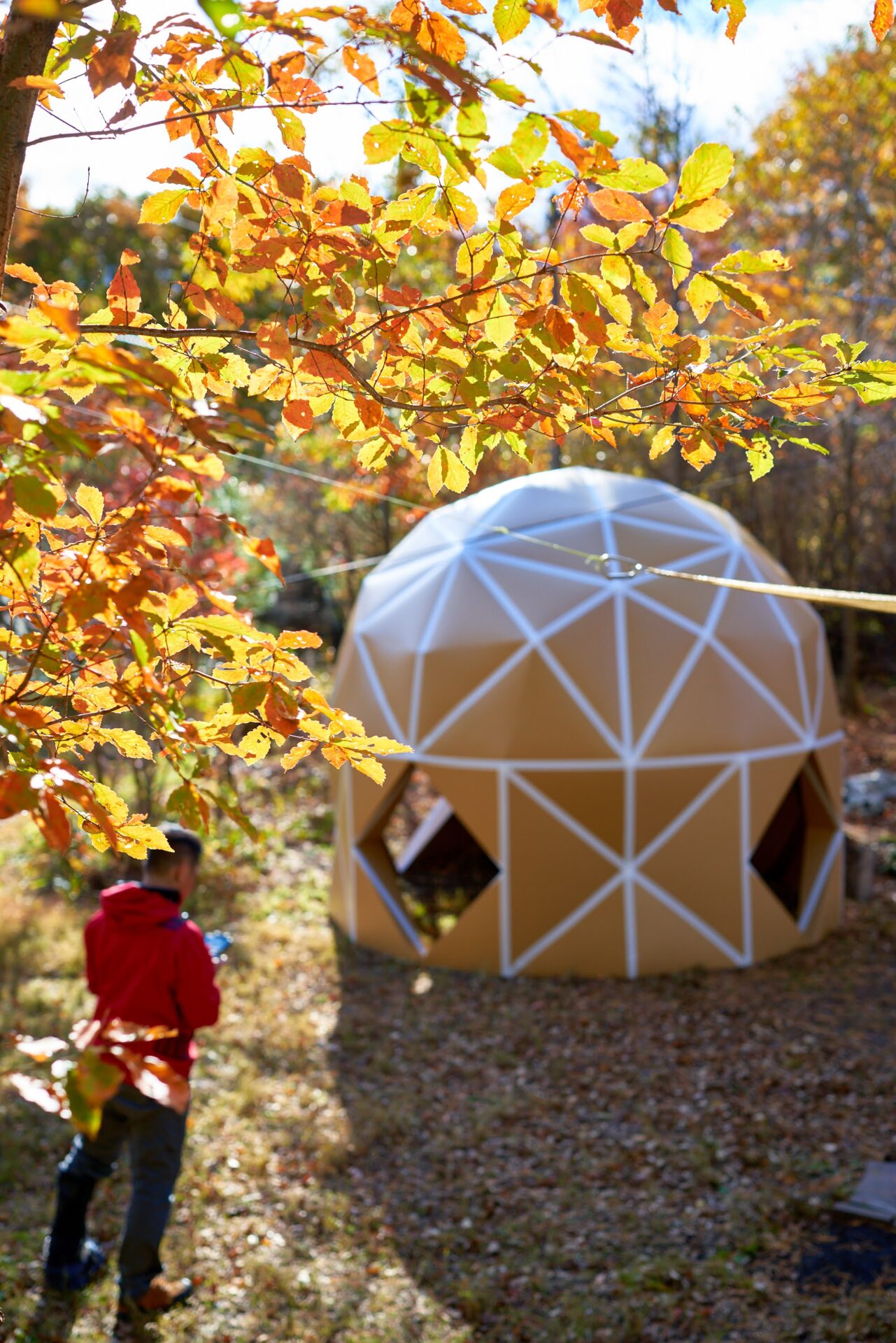
,000 days Murakami has spent in extreme environments is surely a series of experiences that is far beyond the imagination of ordinary people. However, the intense time spent in learning about living and cooperating deeply with others may provide us with hints on how to live in our society today, where we are faced with new restrictions.
According to Murakami, halfway through a project, the crew members start to relax and things become easier. Perhaps one of the stresses of the current coronavirus pandemic is that the end is not yet in sight.
- When things seem to be going well, think about whether anyone else is feeling some extra burden.
- Be aware of changes within you, such as whether you are becoming more or less sensitive to your surroundings.
- Don’t work too hard and maintain some spare energy.
- Have things that enhance your private time.
- Eat meals, not sustenance, around the dining table with others as much as possible.
- Tea time can act as both a brake and wheel for the team
Some of these suggestions may help make our daily lives easier, but we shouldn’t aim to be perfect.

Lastly, we asked Murakami, who is an expert in isolated environments, whether he has gotten in any fights with his family during lockdown. He laughed as he said, “I get my share of scolding.”
We are glad to know that even an expert who has survived extreme conditions is just an ordinary person, just like us.
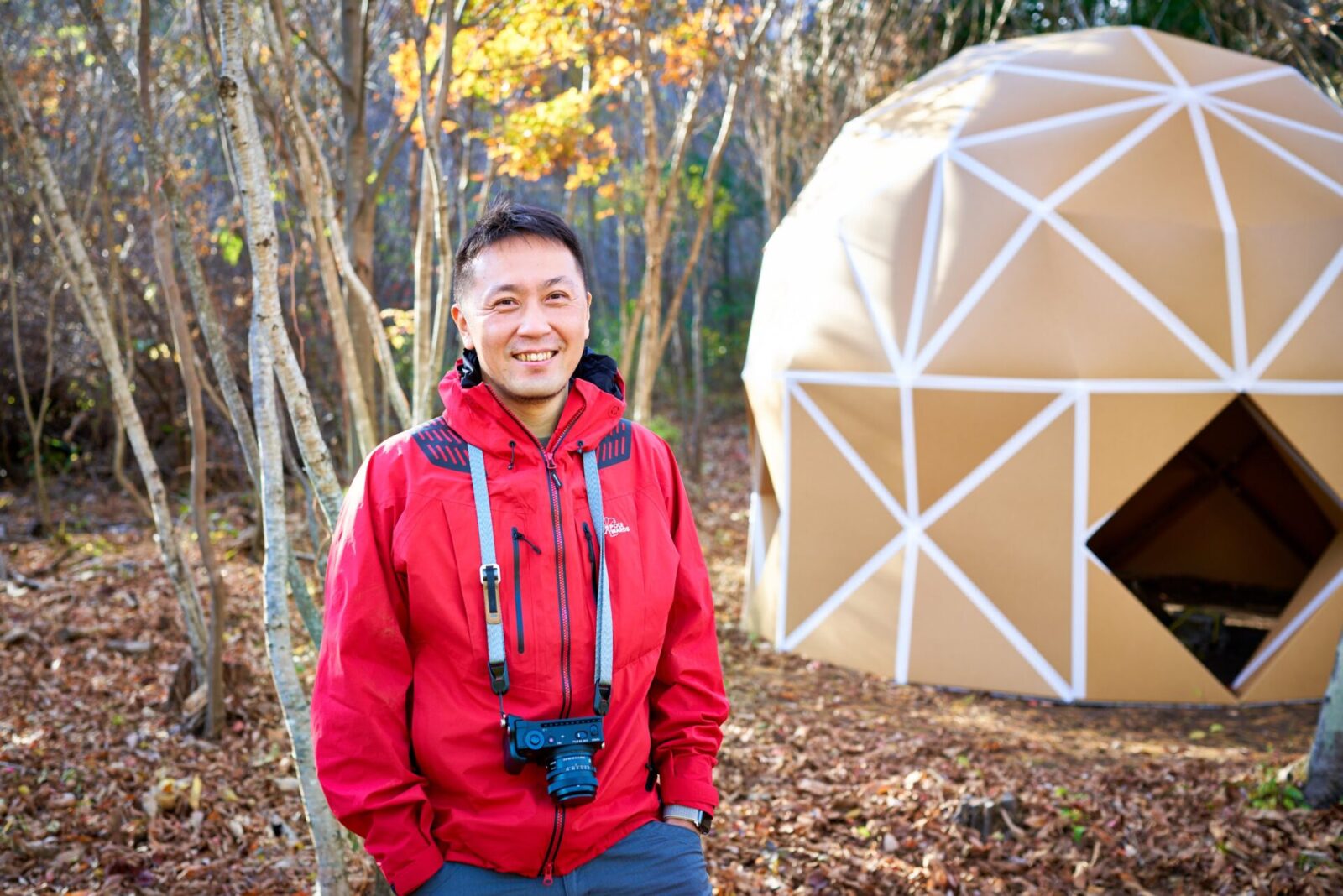
Photo:Umihiko Eto
Translation: Sophia Swanson
Editor. Born and raised in Kagoshima, the birthplace of Japanese tea. Worked for Impress, Inc. and Huffington Post Japan and has been involved in the launch and management of media after becoming independent. Does editing, writing, and content planning/production.
